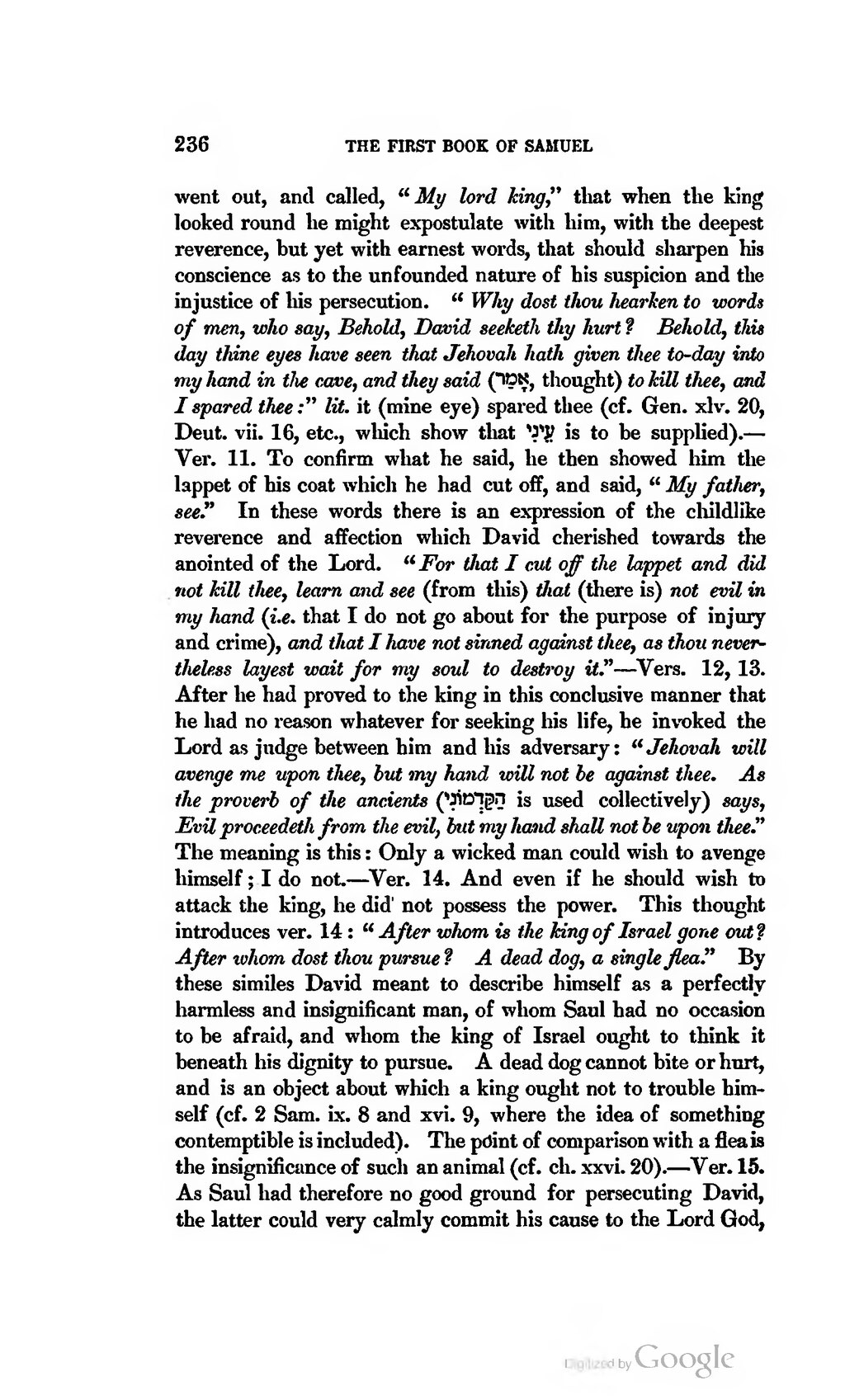went out, and called, “My lord king,” that when the king looked round he might expostulate with him, with the deepest reverence, but yet with earnest words, that should sharpen his conscience as to the unfounded nature of his suspicion and the injustice of his persecution. “Why dost thou hearken to words of men, who say, Behold, David seeketh thy hurt? Behold, this day thine eyes have been that Jehovah hath given thee to-day into my hand in the cave, and they said (אמר, thought) to kill thee, and I spared thee:” lit. it (mine eye) spared thee (cf. Gen 45:20; Deu 7:16, etc., which show that עיני is to be supplied).
Verse 11
To confirm what he said, he then showed him the lappet of his coat which he had cut off, and said, “My father, see.” In these words there is an expression of the childlike reverence and affection which David cherished towards the anointed of the Lord. “For that I cut off the lappet and did not kill thee, learn and see (from this) that (there is) not evil in my hand (i.e., that I do not go about for the purpose of injury and crime), and that I have not sinned against thee, as thou nevertheless layest wait for my soul to destroy it.”
Verses 12-13
After he had proved to the king in this conclusive manner that he had no reason whatever for seeking his life, he invoked the Lord as judge between him and his adversary: “Jehovah will avenge me upon thee, but my hand will not be against thee. As the proverb of the ancients (הקּדמוני is used collectively) says, Evil proceedeth from the evil, but my hand shall not be upon thee.” The meaning is this: Only a wicked man could wish to avenge himself; I do not.
Verse 14
And even if he should wish to attack the king, he did not possess the power. This thought introduces 1Sa 24:14 : “After whom is the king of Israel gone out? After whom dost thou pursue? A dead dog, a single flea.” By these similes David meant to describe himself as a perfectly harmless and insignificant man, of whom Saul had no occasion to be afraid, and whom the king of Israel ought to think it beneath his dignity to pursue. A dead dog cannot bite or hurt, and is an object about which a king ought not to trouble himself (cf. 2Sa 9:8 and 2Sa 16:9, where the idea of something contemptible is included). The point of comparison with a flea is the insignificance of such an animal (cf. 1Sa 26:20).
Verse 15
As Saul had therefore no good ground for persecuting David, the latter could very calmly commit his cause to the Lord God,
